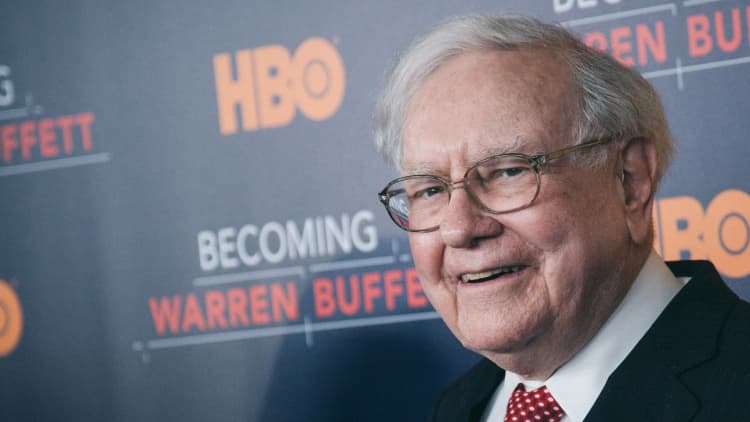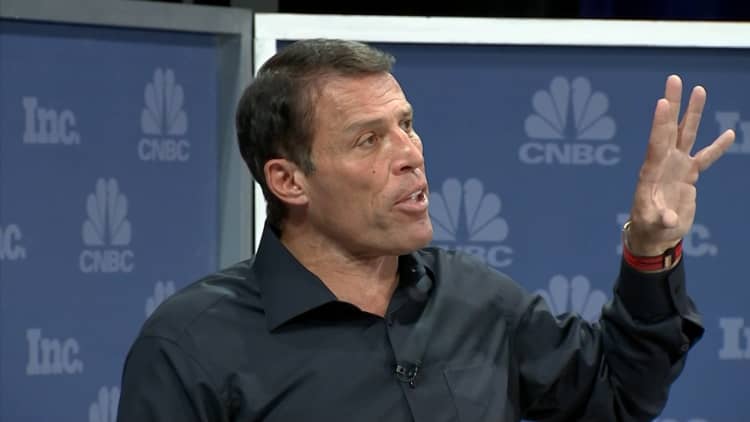Jack Bogle, who died yesterday at age 89, was one of the world's greatest investors. The founder of investment company Vanguard Group, he was known by many as the "father of index investing." His decades-long success had a unique start, however: a thesis he wrote as a college senior at Princeton.
"Were there no Princeton, there would be no Vanguard," Bogle explained at an address at Princeton in 2004.
Since the 1929 market crash wiped out his wealthy family's fortune, Bogle attended college on a scholarship.
Though Bogle had snagged good grades at the preparatory school Blair Academy, he found Princeton tough. A low point came in the fall of 1948 when Bogle struggled to pass an economics course taught by Paul Samuelson, a Nobel Laureate in Economics.
Bogle said he often struggled to maintain anything above the equivalent of a C average. He put his energies into his senior thesis to keep his scholarship and leave Princeton on a high note.

Determined to write his thesis on a subject no one else had tackled, he took to one of Princeton's many libraries for research. That's when, in December of 1949, Bogle discovered an issue of Fortune magazine.
He paused on an article titled "Big Money in Boston" that described the mutual fund industry, one it said was "tiny but contentious." The piece focused on a company called Massachusetts Investors Trust, one of the first of these companies, according to Business Insider.
The article said that the industry could be very influential and that it could be the "ideal champion of the small stockholder." The description caught Bogle's attention and he decided on the spot to pursue the topic further for his thesis.
Bogle would spend countless hours researching and analyzing the industry. In the end, he earned a top grade and graduated Princeton magna cum laude. "It was a delightful, if totally unexpected, finale for my academic career at Princeton," he said at the 2004 talk.
The resulting 130-page paper reached key conclusions that would lay the groundwork for Bogle's career and investing philosophy, he explained in a 2013 essay for the Journal of Portfolio Management.
Some of these ideas included the argument that mutual funds "may make no claim to superiority over the market averages" and "future growth can be maximized by reducing sales charges and management fees."
The paper also led to an important mentor. Walter Morgan, a 1920 Princeton grad and the founder of the Wellington Fund, read his thesis and later agreed to hire him. "Largely as a result of his thesis," he said to his staff at the time, "we have added Mr. Bogle to our Wellington organization."
That job helped launch his professional career. "He gave me the opportunity of a lifetime," said Bogle.

Bogle's ideas were contrary to the thinking of the time, an article in Kiplinger explained today, but shaped Vanguard, the firm he'd later found, with a "new way to fund a company." Lower fees, the magazine said, would help attract investment dollars and "gain traction" over existing rivals.
While Bogle's philosophies were mocked at first by the investment management industry, his common sense approach to investing would earn him a place among the most influential investors.
Even Warren Buffett would count Bogle among his personal heroes, saying his approaches helped "millions of investors realize far better returns on their savings than they otherwise would have earned."
Bogle retired from Vanguard in 1996, but continued to be an advocate for investors. He often spoke on investing topics and would eventually write 13 books.
His first book even earned a forward by economist Samuelson, the professor in whose class Bogle struggled at Princeton so many years ago.
In his most recent book, "Stay the Course: The Story of Vanguard and the Index Revolution" published just last fall, Bogle said his early thesis was steeped in idealism.
Six decades later, he wrote, that idealism had "hardly diminished."



